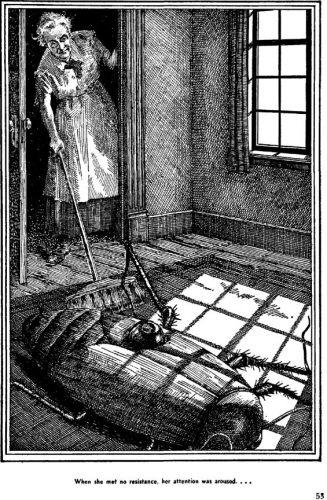The Metamorphosis – Franz Kafka
Franz Kafka's Metamorphosis, perhaps his most famous work, has been translated countless times and analyzed countless times. Few people know or have read this book, but I had to wait until I was 33 to read it. I wish I had read it sooner.
After reading Metamorphosis, I started thinking about it. I considered its characters, behaviors, and thoughts, and formed my own opinions about them. Then, I wondered what other people had thought about Metamorphosis, and I researched them. Some ideas were similar to mine, and some were different.
There have been suggestions that the book explores the father syndrome that Franz Kafka is said to have experienced, and that a young person's thinking differently from their family, their lack of understanding, and their withdrawal into themselves are all ideas, but I don't want to delve into the details. There may be other ideas about the Metamorphosis, and I'm sure there are, but I want to write my own.
What was transformation? Transformation meant changing without reverting to something else. This is why the book's title faced criticism when translated as "Change," because change also implies the possibility of reversal. Transformation, or metamorphosis, is a phase experienced by some living things in nature. For example, a caterpillar undergoing metamorphosis and turning into a butterfly is an irreversible change. This is why international editions often used a butterfly as the frontispiece.
Our main character wakes up one morning to find himself transformed into an insect. At first, he's unsure how to control his new body, but over time, he learns, and even begins to think and feel like an insect. His human thoughts and emotions diminish, and he begins to lose his memory, but there are things he will never forget, such as his family and especially his sibling. Many people have mistaken this transformation for a child's adolescence, but can we limit it to just that? I could also interpret this transformation as a person undergoing an intellectual transformation at some point, based on the knowledge and thoughts they accumulate over time.
There are times in a person's life when they experience intellectual revolutions and transformations. It's unclear when or how this will happen, but it often requires gathering certain information and ideas and truly assimilating them. As a person continues in this vein, they eventually experience that intellectual revolution. After that revolution, they are no longer the same person they were before; they have transformed into a very different person. They can't return to their old personality and struggle for a while in their new one because they've experienced a moment of leapfrog. They must internalize that personality and then move on. During this time, they can't express themselves, and others can't understand them. Just like our main character. Over time, they will internalize their new personality—their ideas—and pick up where they left off. The topic of this intellectual revolution doesn't matter; I believe everyone experiences it with sufficient knowledge and ideas.
Beyond this idea, some of our main character's thoughts, surprises, and sorrows caught my attention. After his family's bankruptcy, he's worked a job he dislikes, earning a position where he both supports his family and pays off their debts. He's living a life he doesn't truly love or want, sacrificing himself for his family. This kind of life alienates him from everyone, because to live such a life requires him to abandon his true self. When he abandons his true self, he can't gather accurate information from those around him, and he becomes alienated. Therefore, sometime after his transformation, he's surprised to discover, while his family is talking, that his father has some cash saved up, and he's happy to learn that he can actually work less. How innocent.
In fact, he was so innocent that, knowing he would study even harder, he hatched plans to send his brother to the conservatory, fantasizing about telling him on Christmas Eve. The last time he remembered this was when his brother played a piece on his violin for the tenants. However, this made him realize his brother's desire for his death, and he stepped aside, ensuring his own death.
Some of us have such well-intentioned thoughts that this alienates us from our surroundings, prevents us from seeing what we need to see, and this causes our character to experience communication problems, loneliness, and perhaps even their own death.
Metamorphosis is actually such a beautiful book that we can get different things out of it every time we think about it.



